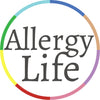Pollen is a fine powdery substance that is typically yellow, consisting of microscopic grains discharged from the male part of a flower or from a male cone on the plant.
A Pollen Allergy occurs when there is an immune response to pollen from grasses, weeds or trees, with trees usually pollinating in late winter and early spring.
A Pollen Allergy commonly triggers Allergic Rhinitis (also called Hay Fever). Pollen Allergies may also aggravate Asthma, including Thunderstorm Asthma, a type of Asthma triggered by Pollen.
If you have a Pollen Allergy, it can be challenging to avoid pollen as it is in the wind and is easily inhaled. There are however, steps that you can take to reduce exposure and reduce risks that can lead to an allergic reaction from pollen.
Here are some steps that you can try to manage your Pollen Allergies in Spring (but also year-round)-
AT ALL TIMES
- Know the pollen forecast for the day or week ahead- Check the Pollen Count, the Temperature, and the Wind to understand what to expect. There are plenty of online resources, weather channels, mobile apps, television, and radio shows that report this, to help you know what to expect ahead.
- Carry to wear (as required) a surgical or N95 mask that filters air particles (reduces pollen) as small as 0.04. Pollen is typically between 10 and 100 micrometres in size.
- Carry your pollen allergy relief options and emergency medication to have it on hand in the case of a minor or severe allergic reaction.
- Make sure others (family, friends, work, Uni, school, etc) are aware of your Pollen allergy so they can help you manage and reduce allergens where possible.
AT HOME
- Minimise indoor pollen by:
- keeping your windows shut (especially at night or when your lawn is being mowed or when the pollen counts are high)
- dusting any surfaces exposed to the outdoors
- using your AC or a HEPA purifier to filter allergens
- Delegate garden activities or outside chores such as lawn mowing, weeding, cleaning the gutters, etc
- Limit your time outside when the pollen count is high. Use it as an opportunity to plan indoor activities such as baking, board games, console gaming, reading, watching tv, etc.
- Try not to hang laundry outside, as pollen can stick to clothing, sheets, towels, etc.
- Clean your floors with a vacuum that has a HEPA filter.
- Warm wash your bedding and sheets at least once a week in water hotter than 60°C.
- If you have pets such as a cat or a dog:
- wipe their paws before they come inside
- wipe their fur with a damp towel (make sure you put the towel in the laundry basket straight after)
- keep them off your bed
- keep them away from your bedroom, and
- wash them regularly
OUTDOORS/ ON-THE-GO
- Stay home on dry, windy days.
- Where possible, reduce outdoor activity in the mornings and evenings when pollen counts are usually at their highest. Check the pollen forecast to be sure.
- Where possible, to reduce pollen contact, wear:
- protective eye gear such as sunglasses
- surgical or N95 masks
- hair coverings, such as a caps/hats
- long sleeve tops
- long pants, especially if you’re in contact with high grasses
- If you drive or you’re in a car, use the air conditioning on the recirculating cycle (so it doesn't pull in outside pollen) and don’t open the windows.
WHEN RETURNING FROM THE OUTDOORS
- Leave your shoes, sunglasses, and caps/hats at the door.
- If possible, remove and place your clothes in a laundry basket near the front door.
- Shower to remove pollen you pick up from outside.
- Change your clothes and wash them (as soon as you can) to remove the pollen from them.
TREATMENT & DIAGNOSIS
If you experience or are in the presence of someone who encounters a serious reaction (this may include difficulty breathing, wheezing, throat tightening, swelling, collapse, etc), follow their action plan or emergency instructions and call or have someone call Triple Zero (000) immediately.
Adrenaline (Epinephrine) is the first-line treatment for Anaphylaxis. After administering Adrenaline (Epinephrine), seek emergency medical attention by calling Triple Zero (000) for an ambulance.
If you are unsure what to do, call Triple Zero (000).
If you or someone you know is suspected of having an allergy, it’s important to discuss diagnosis, symptoms and treatment with a qualified health care provider to understand how to manage individual allergies and also to set up an Allergy Action Plan in the case of a reaction.
Always present your Allergy Card, Medical Alert Bracelet, Action Plan or Necklace to ensure health care providers, family members, friends, colleagues and others are aware of your Allergies.
Provided through qualified healthcare providers, Immunotherapy or "desensitisation" is a treatment option conducted for Allergen-specific desensitisation. In some instances, it may make a person less allergic or more tolerant to the substance they are allergic to. Immunotherapy isn't a cure and usually doesn't make the symptoms disappear entirely, but it has been shown to reduce the symptoms. Speak to a qualified healthcare provider to learn more.
Click here to read more about environmental allergies




